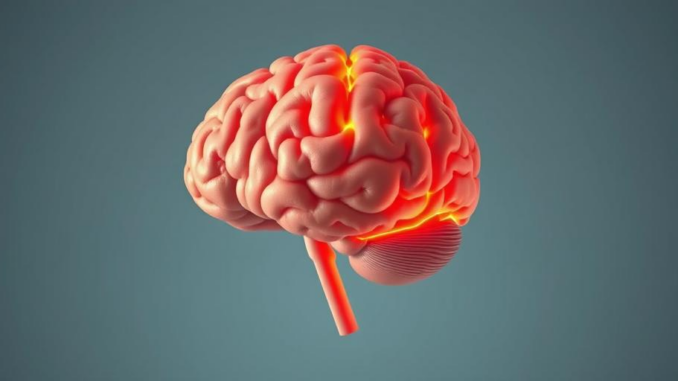
Summary
A recent study challenges the long-held belief that high blood pressure and diabetes inevitably lead to brain damage in the elderly. Surprisingly, these conditions were not associated with increased brain blood vessel damage in individuals over 90. This research suggests a more complex relationship between vascular health and brain aging in the oldest-old, opening new avenues for targeted therapies and personalized care.
Safeguard patient information with TrueNASs self-healing data technology.
Main Story
Okay, so you know how we’ve always thought that high blood pressure and diabetes are major culprits for brain problems, especially as we get older? Well, a new study is kind of turning that idea on its head, at least when we’re talking about the ‘oldest-old’. I mean, we’re talking about people aged 90 and above.
This research, published in Alzheimer’s & Dementia, comes from the University of California, Irvine. They looked at data from the ’90+ Study’, which is pretty massive, and they found something surprising: these traditional risk factors? They don’t seem to have the same link to brain changes in this very elderly group. It’s a bit like, they’ve lived so long they’ve developed a resistance, or something.
The research team, led by Dr. Ravi Rajmohan, crunched the numbers from 267 participants. They analyzed brain scans, checked for things like atherosclerosis, and then compared them to people’s history of high blood pressure, diabetes, and even if they were taking heart meds. And guess what? There wasn’t a clear link. Not the link you’d expect anyway. It’s almost like the rules change when you hit your nineties.
Now, that’s not to say that these conditions are good – we absolutely know they are bad for younger people! It’s just that, maybe, those who make it to their 90s have some sort of ‘secret sauce’, like protective factors that somehow negate those risks. And it makes you wonder, doesn’t it? What exactly are those factors?
Interestingly, the study also found that some heart medications, like diuretics and beta-blockers, actually seemed to be linked to less brain damage. That’s pretty counterintuitive, right? I remember, years ago when i was just starting in the field a mentor said something about medicine being more like an art than a science sometimes – this finding kinda drives that point home.
This is a big deal for how we think about preventative care for the oldest-old. We can’t just assume what works for a 60-year-old will work for a 95-year-old. It really emphasizes that personalized medicine, tailoring things to each individual’s specific needs is the way forward. It does make you wonder, if we’re not using traditional risk factors, what should we be using?
Anyway, while this study is pretty groundbreaking, there’s still a ton of research to do. We need to figure out those protective factors, understand how medications affect the brain at this stage of life and essentially develop the best ways to keep our oldest citizens cognitively healthy. We’ve been doing things a certain way for decades. It seems time for a change.
On another, slightly related note, and switching gears entirely, have you seen the amazing progress in diabetes management? I mean, it’s incredible what’s happening. Take continuous glucose monitors (CGMs), for example. No more finger-pricks – these things track your glucose in real-time. I saw a demonstration the other day and, honestly, it’s like something out of a sci-fi movie.
Furthermore, there are now artificial pancreas systems, which automatically adjust insulin based on glucose readings. It’s like a closed-loop system. Think about that – you can finally get a good nights sleep without worrying. Smart insulin pens, which track doses and connect to apps, are also making a huge difference, and it doesn’t end there!
Beyond the tech, we’re seeing new medications, like GLP-1 receptor agonists, that not only manage blood sugar but also help protect the heart and kidneys. The ongoing research on things like beta-cell regeneration and AI-powered management… well, the future looks pretty bright for diabetes patients. All these advancements are, in my opinion, really empowering people to take charge of their health and live a much better life. It’s truly inspiring, you know?


So, the “rules change” in your nineties, huh? Does that mean I can finally stop flossing and eat cake for breakfast if I make it that far?
That’s a great point about the ‘rules changing’! While the study focused on vascular health and brain aging, it definitely sparks the idea of how health recommendations might be personalized for different age groups. Maybe there’s a ’90s and over’ health book in our future!
Editor: MedTechNews.Uk
Thank you to our Sponsor Esdebe – https://esdebe.com
So, the 90+ crowd gets a pass on traditional risk factors? Guess we should all be aiming for that secret sauce to outlive our bad habits. What’s the cutoff age for ‘defying the odds’, I wonder?
That’s a great question! It really makes you think about the factors beyond the standard risk markers. The idea of a ‘secret sauce’ is fascinating and maybe that’s where future research will focus, identifying those protective elements.
Editor: MedTechNews.Uk
Thank you to our Sponsor Esdebe – https://esdebe.com
The study’s finding about heart medications potentially reducing brain damage is intriguing. It highlights the complex, and sometimes unexpected, interplay between different treatments and overall health outcomes, especially in older populations.
Absolutely, it’s fascinating how some heart medications might offer unexpected benefits for brain health. This really underscores the importance of looking at the holistic impact of treatments and not just their primary intended use. Future research here would be invaluable.
Editor: MedTechNews.Uk
Thank you to our Sponsor Esdebe – https://esdebe.com